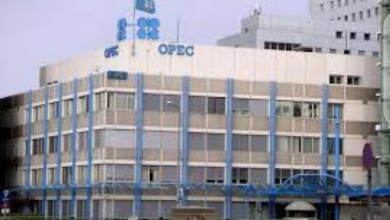CPPE warns of threat to Nigeria’s refining industry ….urges FG to reinstate 15% petroleum import duty

The Centre for the Promotion of Private Enterprise (CPPE) has cautioned the Federal Government against adopting short-term policies that could undermine Nigeria’s long-term industrial and energy security goals.
The organisation is calling for the reinstatement of the suspended 15 per cent import duty on petroleum products, arguing that the action is vital to protect domestic refining investments.
The warning came in a policy brief released on Sunday by CPPE’s Founder and Chief Executive Officer, Dr. Muda Yusuf.
The document, titled “Safeguarding Nigeria’s Domestic Refining Capacity and Energy Security: Policy Imperatives Following the Suspension of the 15 per cent Import Duty on Petroleum Products,” assessed the broader implications of the government’s recent policy shift.
Yusuf said the waiver on petrol and diesel imports threatens key national objectives, including energy security, industrial development, exchange-rate stability, job creation and economic sovereignty.
“Nigeria must avoid short-term measures that jeopardise long-term national interests.
“The suspension creates structural disadvantages for domestic refiners and weakens the policy framework that has supported new investments, ” he said.
He urged the government to restore the duty and ensure predictable policies that incentivise local production.
According to him, protective measures remain essential because local refineries operate in a high-cost environment marked by unreliable power supply, logistics bottlenecks, expensive capital, infrastructural constraints and security risks.
“These structural burdens make price parity with foreign imports impossible without a reasonable level of protection,” he noted.
The CPPE stressed that the Dangote Refinery and various modular refineries represent strategic national assets capable of reshaping Nigeria’s industrial landscape.
Yusuf argued that these multibillion-dollar investments were made with an expectation of policy stability and a supportive regulatory environment.
He added that reversing course now could deter future investors, undermine confidence in the petroleum downstream sector and slow the country’s shift towards energy self-sufficiency.
According to the CPPE brief, the suspension of the duty could boost Nigeria’s dependence on fuel imports, a situation that previously exposed the economy to fluctuating global prices, supply disruptions and enormous fiscal burdens.
It also warned that increased importation would intensify demand for foreign exchange, putting additional pressure on the naira and raising inflation through exchange-rate pass-through effects.
Such vulnerabilities, the organisation said, could worsen the balance-of-payments situation and threaten macroeconomic stability.
Yusuf emphasised that domestic refining supports multiple value-chain activities across petrochemicals, plastics, construction, engineering services and transportation.
Excessive reliance on imported products, he argued, would outsource these economic opportunities and associated jobs to other countries.
He also recommended that domestic refining be added to the list of sectors eligible for import adjustment tax, a benefit already enjoyed by strategic industries such as sugar, cement, steel, pharmaceuticals and automobiles.
Frequent policy reversals, Yusuf warned, could derail Nigeria’s industrialisation ambitions. “Investor confidence is fragile.
“Undermining it at this critical stage threatens the viability of transformational national assets such as the Dangote Refinery and emerging modular refineries, ” he said.



